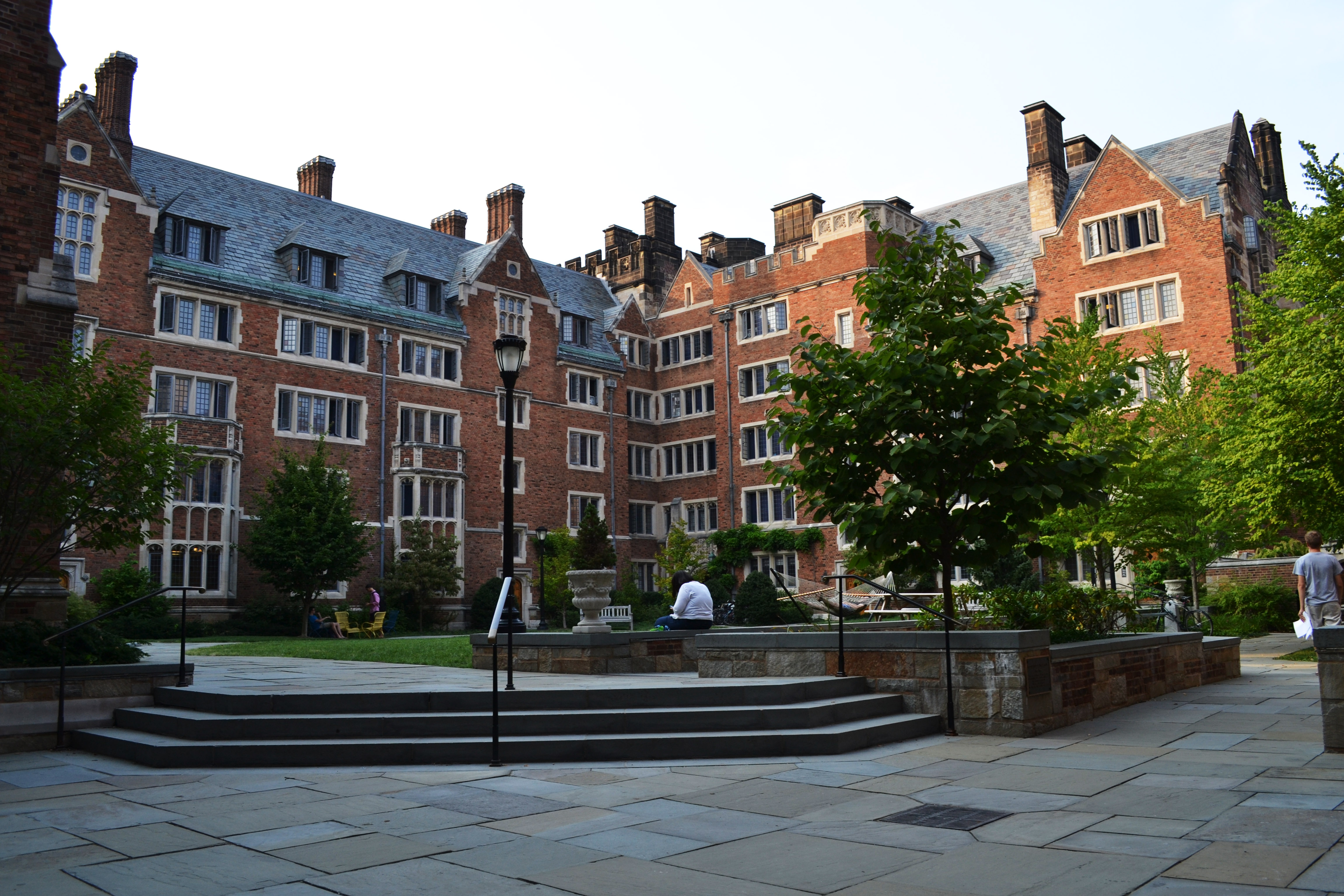
Yale Law School professor John Witt has been thinking lately about the problem of meat-eating.
“I love a good hamburger. But will my kids’ kids be horrified by my choice to eat animals?” he wondered in a recent interview. “We erase the moral visions of the past only at risk of having our own moral projects erased by those who come after us.”
Witt has been pondering historical memory, modern values and the importance of situating individuals and events in their own times as part of his position as chair of the recently formed Committee to Establish Principles on Renaming, which met for the first time this past weekend. In an interview, Witt explained last week the role of the committee, its goals and plans and the challenges of examining yesterday’s decisions by today’s standards.
The committee, formed in early August by University President Peter Salovey, has been charged with formulating guidelines by which all future renaming decisions — including, potentially, one on Calhoun College — can be made. While some have seen the committee as a way to reverse or step back from the Yale Corporation’s decision to retain the name of Calhoun College, Witt said its charge is to think in the abstract of how to go about renaming discussions in general, especially given numerous such debates across America.
“We are in a different conversation now,” Witt said. “Our question is: ‘What are the criteria for thinking about name changes of historical buildings?’ It is an intellectual inquiry.”
At Yale, John C. Calhoun is not the only namesake that has come under scrutiny. Even the name of the University itself could be at stake: Elihu Yale, a merchant with the British East India Company, was a participant in the slave trade. And similar debates have dominated campus discussion at peer institutions, including Princeton and Harvard.
The committee’s charge centers on the tricky dilemma of separating the principles of renaming from the specific, emotional and often personal debates surrounding specific controversial figures, such as Calhoun College.
Witt compared the committee’s undertaking to the work of the Committee on Freedom of Expression at Yale, which authored a report, colloquially known as the Woodward report in honor of its lead author, in 1974. The Woodward report was also born out of specific on-campus controversies but underlined a more overarching commitment to free expression in academic settings. It is often cited as an authoritative document when controversies about free expression arise on campus.
“We are in the same situation,” Witt said. “There has been controversy on campus regarding a particular case and we are trying to determine principles that are independent of the case. We have a very narrow and abstract charge.”
Witt said dozens of community members have already used the committee’s online portal, which went live after Salovey’s Aug. 1 announcement, to share their thoughts on what these principles should include.
Many, he recounts, have said the namesake in question should be evaluated at least in part based on that individual’s contributions to the specific institution to which they belonged.
But in discussing the issue, Witt invariably returned to the difficulty of passing judgment on the past, knowing that society’s current values are not immutable. Witt said he takes seriously the reasons Salovey gave in April for retaining the name of Calhoun College, including the necessity of confronting the University’s complicated history.
“The point is emphatically not that all names are up for grabs because tomorrow’s generation will see things differently,” Witt said. “The point is that we need to be modest about the idea that we stand at the end of moral history and can evaluate the past as if morally omniscient.”
Scholars outside of the committee and Yale offered other potential considerations.
“It seems to me that part of doing good history or sociology is taking into account why a given person was honored, when he or she was honored and what they stood for at the time they were honored,” said James Loewen, an emeritus professor of sociology at the University of Vermont who published a May opinion piece, “10 Questions for Yale’s President,” in the Chronicle of Higher Education to advocate that Calhoun’s name be changed. He added that the committee should also consider how different naming decisions would impact today’s constituencies.
The committee’s work has already begun in earnest. While it has been operational for around a month, the committee members met in person for the first time this past weekend, for a day and a half.
Witt and the committee members — mainly comprised of faculty members with relevant expertise but also including alumni, staff and students — are currently studying a compilation of case studies and scholarship on naming issues, past and present, Witt said. That literature will be an important tool, according to Yale College Dean Jonathan Holloway, who serves on the committee.
“It’s a background document which includes leading scholarly analysis on renaming issues, not just campus-based, but also international,” Holloway said. “It really is a very thoughtfully assembled document that focuses on the big principles of renaming.”
In estimating a timeline, Witt said he hopes to roughly follow the example of the Woodward Report, which was written in around three months. He plans to spend the first half of the fall semester collecting more community input, he said.
“Once you start renaming things there are no ends, so you might as well set up rules,” said Steven Benner ’76, one of the Woodward Report’s authors. “If [the issue of renaming] is important to the community, it is important to the president and then it is important to have rules.”







